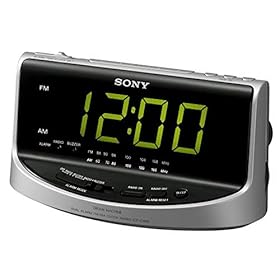The Consumer Price Index tries to track inflation by looking at the price of a basket of goods, representing typical household consumption, over time. As the price of the goods rise, inflation rises.
But what constitutes a typical basket of goods? A household in the 1950s consumes some of the same things we consume today (washing machine, radio, electricity, housing), but we have lots of things that did not even exist in the 1950s (cell phones, the Internet, medicines etc). So, over time, the "basket of goods" is readjusted to reflect changing consumption patterns, but this then makes it hard to measure inflation. In general, the CPI *overstates* inflation because it does not capture any of the price decline that happens when a new toy is introduced into the market (early cell phones cost thousands of dollars) to when it is within reach of ordinary people.
Brad DeLong argues that since an item is not added to a basket of goods until its price falls enough that a typical person buys it, most of the overstating of the CPI falls on the rich -- those are the people who
buy fancy new toys initially, so they benefit most from a drop in their price. This makes no sense to me.
To me, the biggest life improvements that CPI fails to capture is the gain from something not being available at all (essentially, the cost is infinite), to something being available at all. If a disease had no cure, and now suddenly has a cure, then the benefit of that is immense. So while it is true that the rich benefit most from the price of something falling from $1000 to $100, that benefit is overshadowed by the benefit we all get by that thing existing at all.
I think this is made even clearer by the rest of Brad's comments, which make even less sense to me
A country that is so phenomenally more productive than the country of the mid-1970s should be able to do a much better job at providing an economic environment in which all Americans can have greatly improved income security, education for their children, and leisure time, as well as a much greater share in the rises in real material standards of living of which the rich have grabbed the lion's--no, much more than the lion's, the tyrannosaurus's--share.
If you asked anyone if they would rather live in 1970 or 2006, the answer would clearly come back 2006. Folks living in 2006 have better health care (both life expectancy and quality of life), funner toys (cell phones, Tivos, Internet), bigger houses, better cars, better food, etc. than people living in the 1970s. And this includes the poorest of the poor as well. 98% of households in the US have cable! Although income volatility may be higher, consumption volatility is lower (thanks to better saving mechanisms), and they clearly have more leisure time as well (given how lifespans are increasing and people are retiring earlier). Is education better? I don't know. I'm told that the government run public school sector is worse, but Universities are certainly richer.
Pedant's note: "Lion's share" means the whole thing. I assume Brad means that when he says "tyrannosaurus's share" but he's being redundant -- he was already at 100%.



